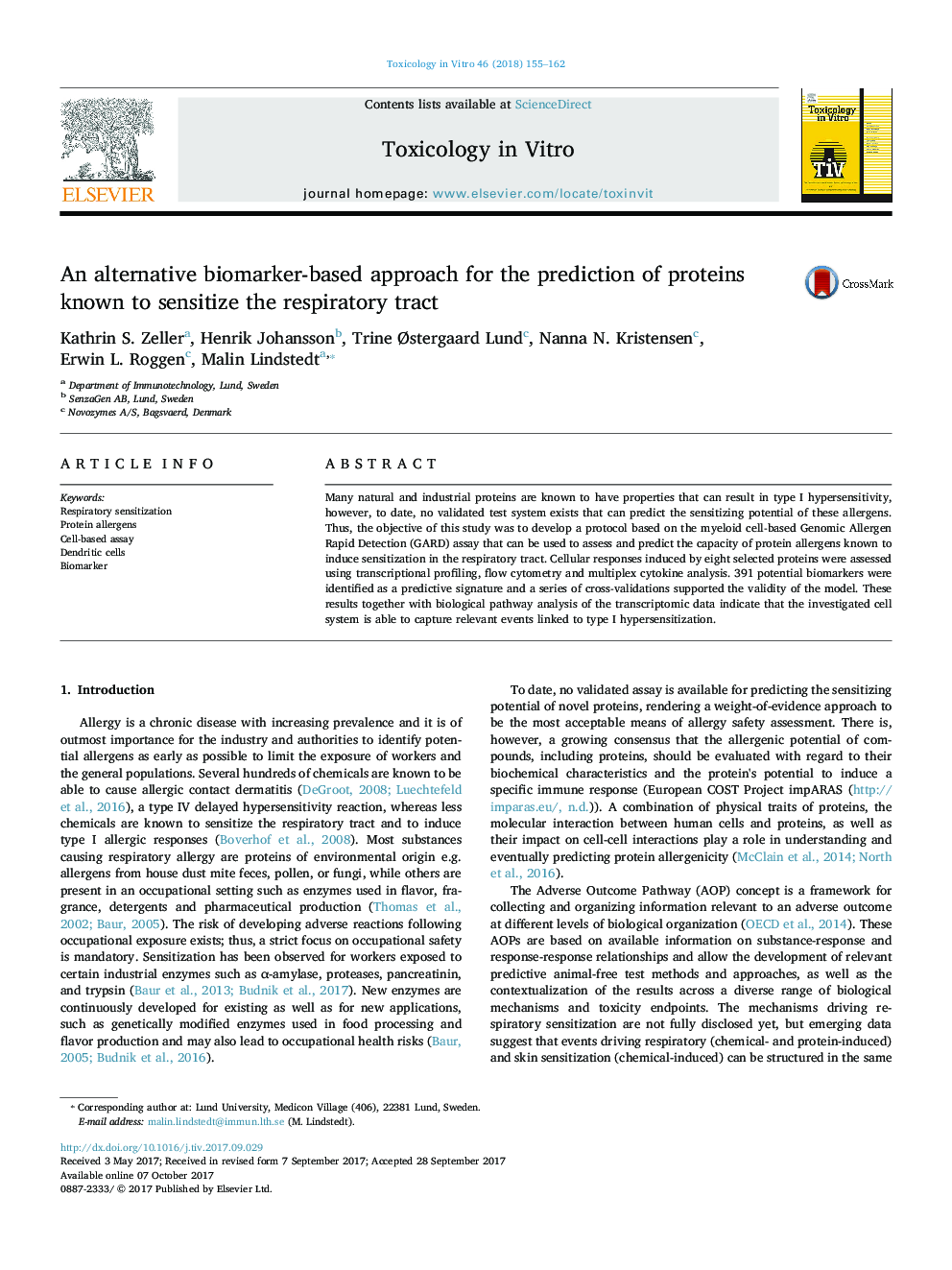| Article ID | Journal | Published Year | Pages | File Type |
|---|---|---|---|---|
| 5562501 | Toxicology in Vitro | 2018 | 8 Pages |
â¢Adjusted protocol based on the myeloid cell-based Genomic Allergen Rapid Detection assay.â¢391 potential biomarkers identified as a predictive signature using transcriptomics.â¢Pathway analysis reveals events linked to type I hypersensitivity.â¢Cross-validation approach supports validity of model to predict protein allergens.
Many natural and industrial proteins are known to have properties that can result in type I hypersensitivity, however, to date, no validated test system exists that can predict the sensitizing potential of these allergens. Thus, the objective of this study was to develop a protocol based on the myeloid cell-based Genomic Allergen Rapid Detection (GARD) assay that can be used to assess and predict the capacity of protein allergens known to induce sensitization in the respiratory tract. Cellular responses induced by eight selected proteins were assessed using transcriptional profiling, flow cytometry and multiplex cytokine analysis. 391 potential biomarkers were identified as a predictive signature and a series of cross-validations supported the validity of the model. These results together with biological pathway analysis of the transcriptomic data indicate that the investigated cell system is able to capture relevant events linked to type I hypersensitization.
